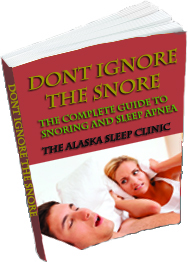A snore is called noisy breathing during sleep, but it can also be the beginning of something life-threatening. People who snore are at risk of developing chronic sleep disorders and over the long term, serious health problems. To stop snoring, It is important to know what causes snoring and what can be done to address an individual problem.
Common Causes
Chronic snorers are all ages, genders and ethnicity. The issue affects tens of millions of Americans. Although anyone can suffer from snoring, there are certain groups who are at greater risk:
- overweight men and women (as well as children and teens.)
- aging adults
The problem is not exclusive to these groups, however. The rattling and wheezing sound has as much to do with throat muscles relaxing as anything. In older adults, this problem is usually blamed on the process of aging.
What actually causes snoring sounds is the vibrations of a narrowed throat passage, partially blocked by the tongue, as air is pushed out of the lungs. The sound gets louder as the passage gets narrower. When occasional closure of the throat occurs, breathing stops and the individual’s sleep pattern is disrupted. This is called sleep apnea, a dangerous health condition which can lead to chronic sleep deprivation.
More Causes
Getting older and being overweight contribute to snoring, but these are not exclusive causes. Allergies, colds, flu and any sickness that causes the nose and throat to get inflamed and blocked are common culprits. In addition, a deviated septum is also known to obstruct breathing at night, as can enlarged tonsils or anatomical abnormalities.
Help for Snoring
Knowing what causes snoring and understanding how to sleep better at night are vital for optimum health. If a person is overweight or a habitual smoker, lifestyle changes are imminent. For people experiencing allergies or seasonal colds, solutions include using allergy medications such as Claritin, Allegra or Benadryl. These medications assist with stopping runny noses and reducing congestion, which allows the individual to breathe better, reducing or eliminating snoring.
If in doubt, or the problem gets serious despite taking over the counter medications, visit a doctor. There may be a stronger medicine available by prescription, or there may be a more serious health issue to deal with.
Taking some simple steps in the bedroom can help as well. For example, try to sleep in a semi-upright position. Try propping an extra pillow or two under the head, neck and shoulders, and use a humidifier. Another possibility is to try ‘breathing strips.’ These hold the nasal passages open for easier breathing while asleep.
If the problem continues or gets worse, be sure to see a professional as early as possible.
Sleep Deprivation

Chronic sleep deprivation is easy to spot. What are the symptoms of sleep deprivation to watch out for?
Constant fatigue and drowsiness.
Irritability
Impatient, less tolerant in social interactions.
Difficulty concentrating
Difficulty with short-term memory
Trouble dealing with stress.
Common physical impairments associated with sleep deprivation include reduced strength and stamina, loss of coordination, blurred vision and abnormal heart rate.
A pattern of insomnia can lead to long term health issues as well, which include (but are not limited too) heart attack, stroke and obesity.
Affecting Others
The symptoms of sleep deprivation affect everyone around the person suffering from it. Sleeping in the same bed as an insomniac can lead to disrupted sleep and the resulting associated issues. Even worse, sleep deprived people who drive are putting other drivers at risk. Statistics show that hundreds die and thousands are injured in drowsy driver related accidents each year.
People who feel they are experiencing the symptoms of sleep deprivation should take steps to fix the issue right away. Don’t’ wait until it leads to serious health problems or something worse.
If you believe that your (or your partner’s) snoring could be a potential cause for concern, contact The Alaska Sleep Clinic for more information or to schedule an appointment at 855-AKSLEEP (855-257-5337)

Juan Koss, M.D. is a psychiatrist in Kentucky and writer of scientific articles for Write My Essay company. He loves his job because it gives him the opportunity to inspire others and share your thoughts with like-minded people.











